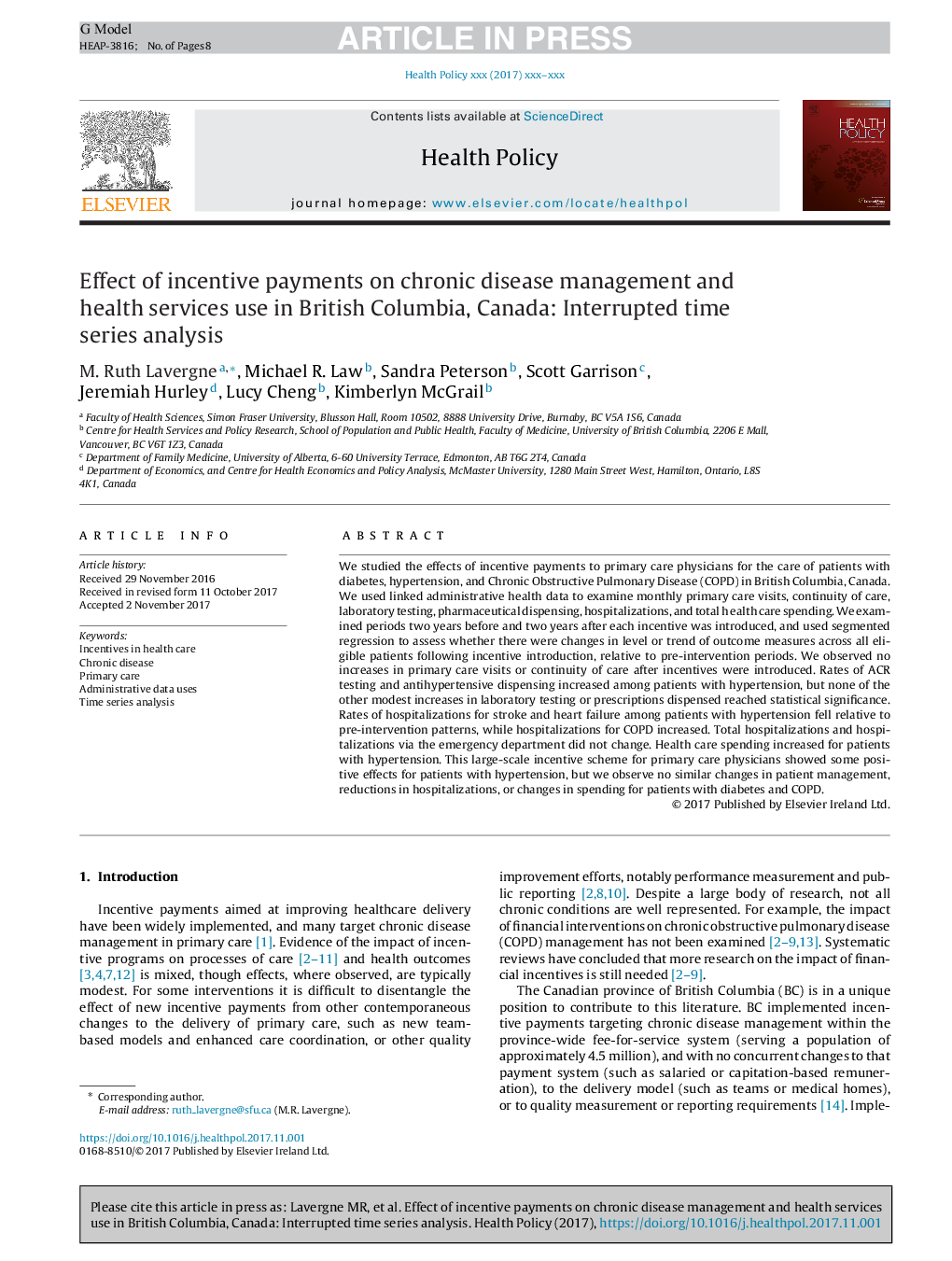ترجمه فارسی عنوان مقاله
اثر پرداخت های انگیزشی در مدیریت بیماری مزمن و خدمات بهداشتی در بریتیش کلمبیا، کانادا: تجزیه و تحلیل سری زمانی قطع
عنوان انگلیسی
Effect of incentive payments on chronic disease management and health services use in British Columbia, Canada: Interrupted time series analysis
| کد مقاله | سال انتشار | تعداد صفحات مقاله انگلیسی |
|---|---|---|
| 91132 | 2018 | 8 صفحه PDF |
منبع

Publisher : Elsevier - Science Direct (الزویر - ساینس دایرکت)
Journal : Health Policy, Volume 122, Issue 2, February 2018, Pages 157-164
ترجمه کلمات کلیدی
انگیزه در مراقبت های بهداشتی، بیماری مزمن، مراقبت های اولیه، داده های اداری استفاده می کند، تجزیه و تحلیل سریال،
کلمات کلیدی انگلیسی
Incentives in health care; Chronic disease; Primary care; Administrative data uses; Time series analysis;

